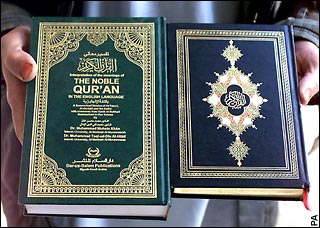Little did I know that the "secret mission" I went on to the South Pacific in the late 1960's with Perry Miles, Jack Anderson, and Leeds Davis (my first husband) would end up this way!
Here's the whole story of what happened, something I only just now learned when I looked up the island of Espiritu Santo in the New Hebrides Islands (our final destination after traveling to Fiji and Tonga on behalf of Mike Oliver, author of "A New Constitution for A New Country").
A wealthy pharmaceutical company owner named Werner Stiefel was the first to try to create an ocean-based libertarian society, not just write about it. In 1968, under the name Operation Atlantis, Stiefel began recruiting eager young libertarians to move into an old motel in Saugerties, New York. From that humble base they were, according to the plan, eventually to obtain sovereignty over some island--the Prickly Pear Cays in the British West Indies were an initial target--and turn it into a fresh, uncorrupted country. Under that new nation's flag, Stiefel and his freebooters could sail ships that would build artificial platforms in the ocean, which would become the real new nation.This story is taken from Revolt of the Porcupines!
The Stiefelers coined their own silver money, the deca, and earned a brief mention in Esquire in September 1970. "Operation Atlantis is a real mind-blower," Esquire said. "They're not just interested in a floating community, but an honest-to-God independent country....How are they going to do it? They're going to build an island, baby, in the middle of the ocean." In 1971 the group changed the price of its newsletter from 24 U.S. cents to 32 "deca-cents."
In the early '70s Stiefel and his crew built from scratch a rebar-and-mortar boat inside a geodesic dome. They managed, with many difficulties along the way, to sail the homemade vessel from Saugerties down to the Silver Shoals area, near the Bahamas. There, according to Erwin Strauss' book How to Start Your Own Country, they eventually ran afoul of Haitian dictator Jean-Claude Duvalier, who had designs of his own for the area where Stiefel tried to build a nation. (Sunken Spanish galleons with unclaimed treasure were thought to be in the area.) Stiefel and his crew were driven away, and no new Atlantis rose above the waves.
But the dream of an aquatic Galt's Gulch was too sweet to die. Around the same time that Stiefel ran afoul of Baby Doc, Mike Oliver, a concentration camp survivor, coin dealer, and land developer from Nevada, was inflaming libertarian minds with his 1968 book called A New Constitution for a New Country. In it he presented a model constitution for a nation whose extremely limited government could be financed voluntarily. Oliver did more than just write constitutions for sand castles in the sky and imagine ocean-bound libertarian strongholds; he actually gathered teams and money to build them. (Who would actually inhabit them always seemed a bit of an afterthought.)
In 1972, Oliver supervised the sea kingdom of Minerva, built on a South Pacific reef that was dry only at low tide. Minerva was quickly conquered, in one assault with one gunboat, by the king of Tonga. Oliver and his circle--which eventually included John Hospers, a philosopher at the University of Southern California and the Libertarian Party's first presidential candidate--a couple of years later tried to make common cause with a separatist movement on the Bahamian island of Abaco, but that effort fizzled out.
Oliver's most serious reach for libertopia came on the South Pacific island of Vanuatu, part of the New Hebrides. In 1980 representatives of Oliver's Phoenix Foundation--which for a while had former Reason editor and Reason Foundation founder Robert Poole on its board of directors --supplied advice and some technical skill to Jimmy Moly Stevens, leader of a Vanuatu separatist movement. The French and British, who had a peculiar dual protectorate over the islands, were pulling out. While some questioned Stevens' libertarian bona fides, we never got a chance to find out how sincere he was.
This nascent nation also was strangled in its crib. At least this time it took more than one Tongan gunboat. Troops from both Papua New Guinea and Australia, in service of the socialist government that inherited the New Hebrides after the French and British left, suppressed Stevens' rebellion. He spent a decade in jail, and the Phoenix Foundation caught the eye of the feds, who briefly considered prosecution of the parties involved for violations of the Arms Export Control Act and the Logan Act, which prohibits private citizens from interfering in U.S. relations with foreign powers.









